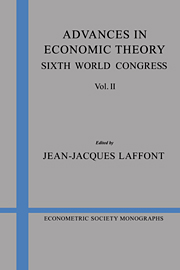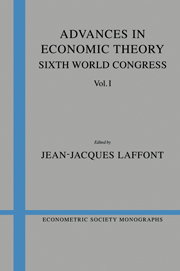This book is only a sketch of what a book on regulation in LDCs should be. Ideally, such a book should provide a general model of regulation which fits the institutional characteristics of LDCs, give empirical evidence of the relevance of such a model, and derive policy implications.
Many obstacles need to be removed before such an ambitious goal can be achieved.
A more general model
Developing economies are often described as “economies with missing markets.” In the contractual world of regulation, this translates into incomplete contracts. Contracts are incomplete because of players' bounded rationality as in any economy, but also because of institutional weaknesses in enforcement, commitment, auditing, etc. Accordingly a theory of regulation viewed as a contract between the regulator and the regulated firm is bound to be more complex than a theory with complete contracts. Furthermore, as we have argued, institutional development proceeds by stages which call for different theories.
A given developing country is characterized by specific values of some crucial parameters such as the cost of public funds (which reflects the quality of the tax system), or the propensity to corruption (which reflects the lack of education, among other things), but also by the quality of institutions such as the quality of democracy, the quality of the judiciary, or the quality of auditing.
Policy recommendations for such a country should be based on a model which incorporates all these features. The work needed to obtain the mapping from the characteristics of the country to the policy recommendations is daunting, and probably beyond the capacity of the few researchers in this area.


